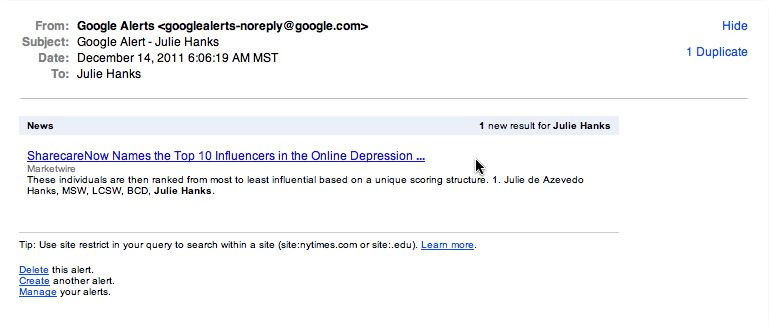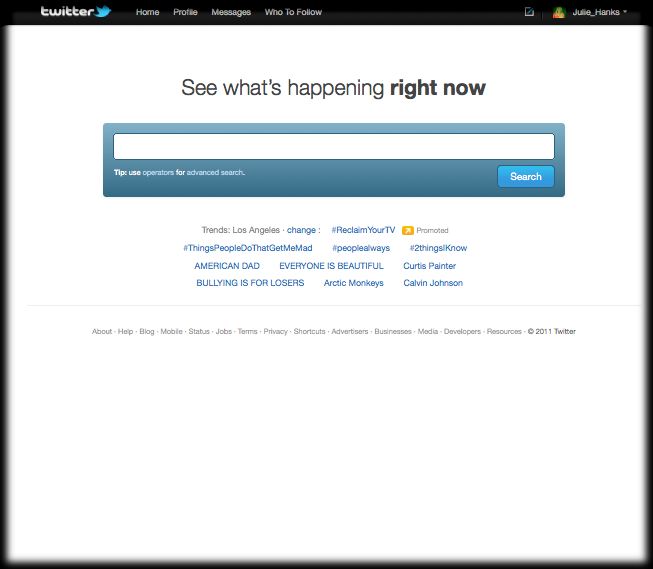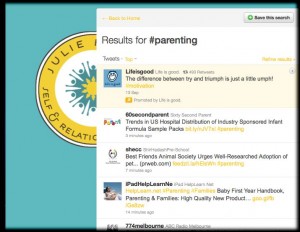 Do therapists really need to care about search engine optimization (SEO)? If you're in private practice the answer is YES!
Do therapists really need to care about search engine optimization (SEO)? If you're in private practice the answer is YES!
So, what is SEO? SEO is the process of improving your website's visibility in search engines like Google, Bing, Yahoo, etc.
Before you starting thinking about SEO, you first need a practice website. Even a single page site with your photo, practice description and contact information is better than nothing! I predict that in the near future it will be nearly impossible to build a successful private practice with clients who pay your full fee unless you have a website and strong professional online presence. If you don't have a website, stop reading here, and get busy creating a site. If you already have a site and you want to make it easier for potential clients to find your practice on the web, read on!
Since "meeting" Your Google Guy, Peter Hannah, LMHC, online I've marveled at the combination of his therapy education and telecommunications specialties. I couldn't wait to "pick his brain" about SEO basics for shrinks to help you succeed in attracting your ideal therapy clients to your private practice.
There's A Reason They're Called "Keywords"
The most common SEO mistakes that therapists make on the website is not understanding how crucial keyword are. Hannah suggests, "If you're a psychologist in Orlando, those two words should be prominent in your site and appear on each page of your website. They should also be in your meta tags. Because people will be searching "Orlando psychologist" to find you and people like you."
Another mistake that Hannah has observed in his consulting work with therapists will often omit their location on the homepage of their website, "Your home page acts as an orientation point to visitors. Who you are, what you do, and where you do it. Make sure it's all on there!"
Hannah says there are two parts to SEO work: on-page (your website) and off-page (out on the web). "On your site, making sure your website clearly has language in it that matches your city and your services is probably the easiest and most important. You might want to talk about "healing" and "journeys" as you write about your work, and that's good, but make sure you're also mentioning "counseling" or "psychotherapy" once in a while, too!", Hannah suggests.
Create Consistent Content
Hannah suggests consistently creating content on the web. This is what I love to do, and it's what contributed to Sharecare Now naming me the #1 online influencer for depression. I've never met anyone who works with Sharecare, but because of the amount of mental health content and the number of channels on which I produce regular content (4 blogs/sites, 5 Facebook pages, Twitter, Google +, Linked In, iTunes podcast, blog posts, YouTube channel, links to my site from national sites) I came up on radar of a national health organization! Hannah suggests writing something helpful for potential clients your website blog and always have it link back to your website.
Get Listed, But Don't Pay A Dime
Paid therapist listing sites aren't as beneficial as shrinks might think. Hannah suggests finding site that list your business for free and write as much information as you can and provide links to your website. My therapy site is listed on Google places, Facebook places, Yelp!, All About Counseling, local university referral listings, City Search, and many other free listing sites. Also, remember to get listed on your professional organization referral lists.
Peter Hannah, MA (Counseling) MS (Telecommunications) is a Licensed Mental Health Counselor in Seattle, WA. He's also a former technology professional who helps therapists market their practices on the web. Since 2005, he's worked with several hundred therapists, marriage counselors and psychologists with SEO, Google Adwords and making their websites more effective. Find out more at his website YourGoogleGuy.com.


 Do you know who's talking about you and your practice on the web? If not, you should. My favorite way to to track who's talking is through
Do you know who's talking about you and your practice on the web? If not, you should. My favorite way to to track who's talking is through  So take a few minutes today to set up Google Alert. You might be pleasantly surprised at what you find. Please post links to what you find below! I'd love to see where other private practitioners are popping up on the web.
So take a few minutes today to set up Google Alert. You might be pleasantly surprised at what you find. Please post links to what you find below! I'd love to see where other private practitioners are popping up on the web. What is Twitter?
What is Twitter?


As healers, we genuinely like to do our work. Guiding clients through the therapy process and seeing them make progress is why we do what we do. But if you're in private practice, you know there's a lot going on in the back end and that it's crucial to run an efficient and organized business.